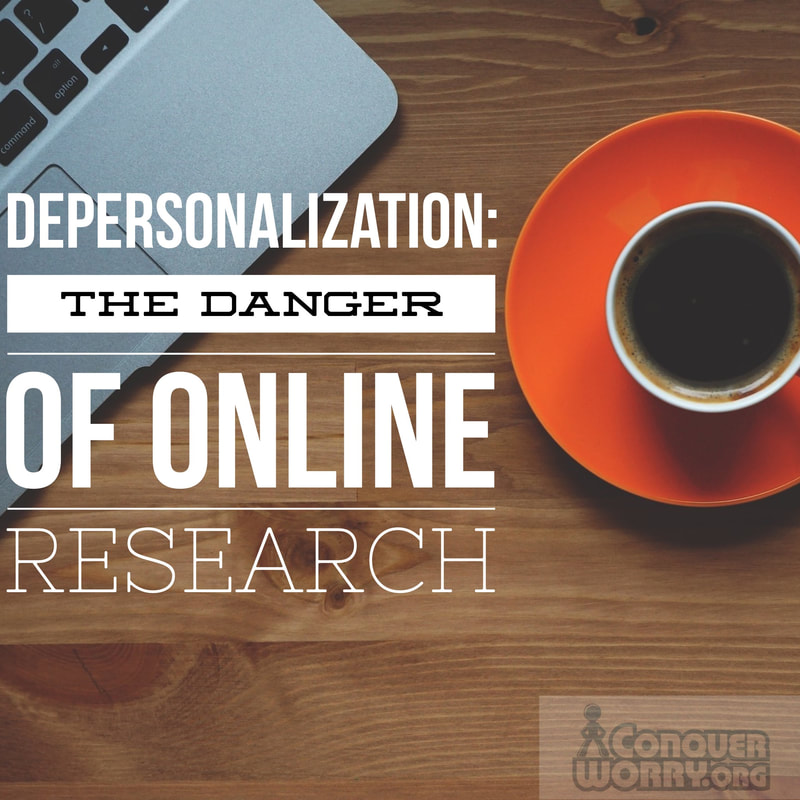|
Article by Shaun O'Connor Edit and post design by Christy Zigweid Photo by freephotocc via Pixabay using @WordSwagApp The availability of medical information across the Internet has absolutely changed how we think about the process of diagnosis. In the past, coming to a conclusion about a group of symptoms was strictly the purview of medical professionals. These days, however, it’s safe to say that most people will at least Google their symptoms before making the decision to see a doctor. I don’t think that this is necessarily a bad thing. Certainly, people can overdo it, jump to panicked conclusions etc. But the fact is that with calm thinking and smart research, a great deal of empowerment is handed back to patients. In countries where medical care is costly, that can mean huge savings for people with minor conditions that a doctor would recognize straight away. Online resources can also provide tremendous support to people with conditions like depression: group communities can provide daily support and exercises for people who might otherwise have simply been prescribed medication by an overworked doctor. However, there’s a specific a group of conditions for which online research and self-analysis can be unhelpful, and even prolong the condition indefinitely: anxiety-spectrum disorders. Panic attacks, GAD, agoraphobia, PTSD, social anxiety, etc -- these are fundamentally different from other conditions in that while they can be triggered by any number of factors, they are driven primarily by ongoing self-analysis of the condition. There’s an often-heard truism in the anxiety community: “If you could just forget that you ever had the condition, it would stop completely.” After all, there’s no organic brain condition that’s causing the disorder to persist, it’s 100% an unwanted thought process. Certainly physical symptoms can occur simultaneously (muscle tension / pain, shortness of breath, etc), but these are a result of the anxious thought process, not the other way around. Depersonalization is one of the most frightening symptoms of anxiety, a feeling of being cut off from your surroundings, as if in a dream or looking at the world through a pane of glass. Friends and loved ones can seem like strangers and you may even feel as if you don’t recognize yourself in the mirror. The sensation itself is commonly experienced (temporarily) when going through a traumatic experience but for many people it can persist and become Depersonalization Disorder (DPD). DPD is one of the more self-reflexive iterations of anxiety, since unlike say, panic attacks or social anxiety, it can persist 24/7 without any apparent trigger. This, coupled with a general lack of medical awareness on the subject, invariably means that sufferers end up intensively searching online for diagnoses, advice etc. And here’s where the availability of medical advice online becomes a problem, often leading sufferers to forums and discussion boards populated with people who are, in the main, as confused and frightened as they are. While a condition like depression can be greatly helped by speaking to a supportive community on a regular basis, the opposite is typically the case for anxiety-based conditions like depersonalization. Disorders like DPD thrive on self-analysis, be it positive or negative, and every message, post and comment reasserts their validity. I suffered with chronic DPD for two years and know all too well the frustration it creates. The urge to research the condition online is almost overwhelming: there’s always the hope that there’s some unseen post out there that will explain the condition, some new pill or combination of old medications that will be the magic bullet. The sad irony is that that very hope for a sudden recovery is both disregarding the nature of the disorder and causing it to persist. Sure, it can briefly feel productive (and even healthy) to do research, to ask more questions about the condition. But the problem is that there’s always more questions. There’s always more research to do. It’s only when you accept that the questions themselves are fueling the condition that recovery becomes possible. The availability of online medical resources and forums has in many ways democratized how we think about the distribution of medical information and diagnoses. But it’s vital to remember that there is a growing subset of anxiety conditions (incredibly, an estimated 2% of people in the US experience dissociative disorders) - Depersonalization being a prime example - that can persist specifically because of the sufferer’s endless need to seek out more information. For sufferers of these types of conditions, online research is very much a mixed blessing. About the Author
2 Comments
|
Build Your Action Based Stress Reduction System
Popular PodcastsOlympian Suzy Favor Hamilton - From Fame to Prostitution to Advocacy
Hall of Fame Basketball Star Chamique Holdsclaw on Mental Resilience Diana Nightingale on her husband Earl Nightingale's Principles for Mental Health Success JoAnn Buttaro on Date Rape & PTSD Survival Story: Its Never Too Late Gabe Howard on BiPolar Advocacy Phil Fulmer on Teen Suicide Prison, Bipolar and Mania with Andy Behrman Columbia Univeristy's Dr. Rynn on OCD Archives
March 2018
Categories
All
|




 RSS Feed
RSS Feed





